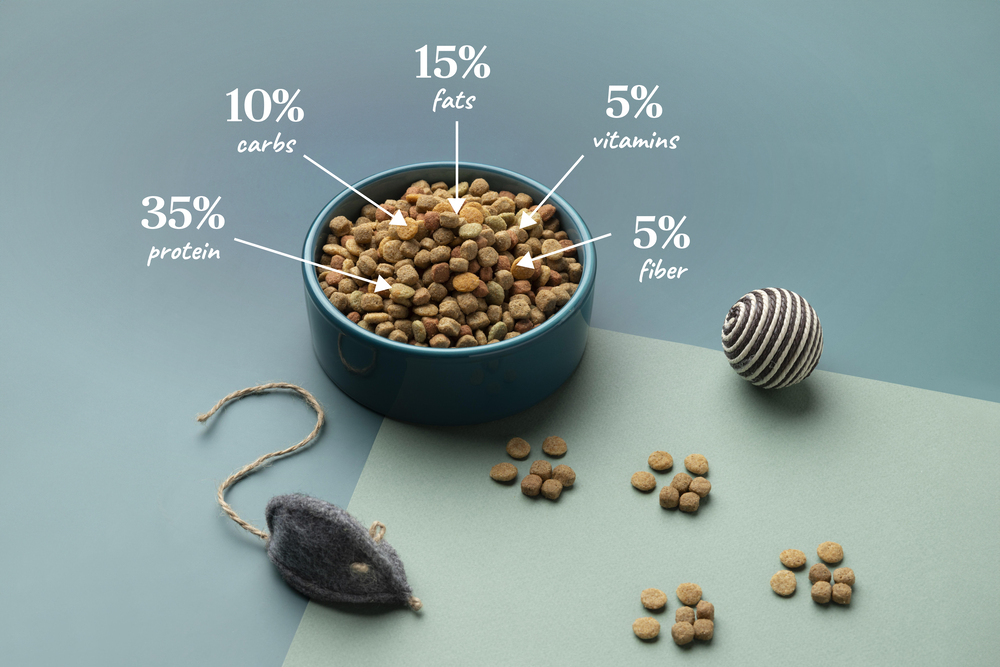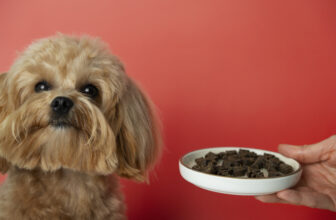
Ensuring your pet receives a balanced, nutrient-rich diet is essential for their overall well-being. Whether you’re caring for a dog, cat, bird, or another beloved companion, the right foods can boost their health, energy, and longevity. This guide explores 10 nutrient-packed foods that cater to the needs of various types of pets and how these foods help maintain their optimal health.
1. Lean Meats (Chicken, Turkey, and Beef)
For: Dogs, Cats, Ferrets
Protein is the cornerstone of a healthy diet for many pets, particularly carnivores like dogs, cats, and ferrets. Lean meats like chicken, turkey, and beef are rich in high-quality proteins that support muscle development, repair, and growth.
- Why it’s essential: Proteins are made up of amino acids that help build and maintain muscles, repair tissues, and support immune function. Amino acids are especially crucial for young and active pets that require extra support for muscle recovery and energy levels.
- Serving tips: Cook lean meats without added seasonings, and cut them into bite-sized pieces to avoid choking hazards. Avoid fatty cuts, as they can lead to weight gain and pancreatitis.
2. Salmon and Other Fatty Fish
For: Dogs, Cats
Salmon, sardines, and mackerel are packed with omega-3 fatty acids, which provide a range of benefits, including improved skin and coat health, reduced inflammation, and enhanced cognitive function.
- Why it’s essential: Omega-3 fatty acids play a role in reducing joint inflammation (especially important for senior pets with arthritis) and improving cardiovascular health. They also support brain health and cognitive function, making them ideal for aging pets.
- Serving tips: Ensure fish is thoroughly cooked or served in a high-quality, pet-safe oil form. Be cautious with raw fish, which can contain parasites, and avoid fish bones.
3. Eggs
For: Dogs, Cats, Birds, Ferrets
Eggs are a fantastic source of complete protein, containing all essential amino acids, along with vitamins such as B12, riboflavin, and selenium. They are also high in choline, which is critical for brain development and liver health.
- Why it’s essential: Eggs support muscle development, brain function, and healthy skin. Their rich protein content also provides pets with a significant energy boost, aiding in overall stamina.
- Serving tips: Eggs should be cooked before serving to pets to avoid any risk of bacterial infection, such as salmonella. Scramble or boil eggs without adding salt, butter, or other seasonings.
4. Sweet Potatoes
For: Dogs, Rabbits
Sweet potatoes are a nutrient-dense carbohydrate source, rich in vitamins A, C, and B6, along with fiber. They promote digestive health and provide a steady release of energy throughout the day.
- Why it’s essential: Vitamin A helps maintain healthy eyesight, while vitamin C boosts immune function. The fiber content supports gut health and can prevent constipation.
- Serving tips: Boil or bake sweet potatoes and cut them into small chunks. Avoid adding sugar or spices, as these can cause digestive upset.
5. Blueberries
For: Dogs, Cats, Birds
Blueberries are a powerhouse of antioxidants, fiber, and vitamins C and K, offering numerous health benefits for pets. They are particularly beneficial for supporting brain and heart health.
- Why it’s essential: Antioxidants help protect cells from damage caused by free radicals, reducing the risk of chronic diseases like cancer and heart disease. The vitamins in blueberries also support immune function and bone health.
- Serving tips: Serve blueberries fresh or frozen as a treat or mixed into meals. They can be particularly refreshing in hot weather.
6. Pumpkin
For: Dogs, Cats, Rabbits, Guinea Pigs
Pumpkin is an excellent source of fiber and beta-carotene, which the body converts into vitamin A. It’s a low-calorie food that supports digestive health and weight management.
- Why it’s essential: Pumpkin’s fiber content aids in preventing constipation and diarrhea, while its low calorie count makes it ideal for overweight pets. Vitamin A helps maintain healthy skin and vision.
- Serving tips: Plain, canned pumpkin is an easy way to add this food to your pet’s diet. Avoid pumpkin pie filling, which contains sugar and spices.
7. Carrots
For: Dogs, Cats, Rabbits, Birds, Guinea Pigs
Carrots are another low-calorie, high-fiber vegetable that’s also rich in beta-carotene and vitamins A, K, and C. These crunchy veggies promote healthy vision and immune function.
- Why it’s essential: The high levels of beta-carotene support eye health, particularly in aging pets. The fiber also promotes healthy digestion, making carrots an excellent snack for pets prone to digestive issues.
- Serving tips: Serve raw for a crunchy treat or lightly steam them to soften the texture, making them easier to chew for older pets or those with dental problems.
8. Brown Rice
For: Dogs, Cats
Brown rice is a nutrient-dense grain packed with fiber, magnesium, and vitamin B6. It’s a good source of slow-release energy, making it ideal for pets with high energy demands.
- Why it’s essential: The fiber in brown rice supports digestive health, while the vitamins and minerals contribute to healthy skin, coat, and nervous system function. Its slow-digesting nature provides steady energy, especially beneficial for active pets.
- Serving tips: Cook brown rice thoroughly before adding it to your pet’s food. It can be mixed with lean meats or vegetables for a balanced meal.
9. Spinach
For: Dogs, Cats, Birds
Spinach is a leafy green vegetable loaded with vitamins A, C, and K, as well as folate, iron, and calcium. This superfood supports overall health, especially in pets prone to bone and joint issues.
- Why it’s essential: Spinach helps maintain healthy bones, improves circulation, and supports a strong immune system. Its high iron content can also be beneficial for pets with anemia.
- Serving tips: Lightly steam spinach to soften it and make it more digestible. Avoid feeding it raw in large quantities, as it contains oxalates that could contribute to kidney problems if consumed excessively.
10. Quinoa
For: Dogs, Cats
Quinoa is a protein-packed grain that contains all nine essential amino acids, as well as magnesium, fiber, and antioxidants. It’s a great alternative for pets with grain sensitivities.
- Why it’s essential: The high protein content supports muscle health, while fiber aids in digestion. Quinoa is also rich in antioxidants that help protect cells from damage and support long-term health.
- Serving tips: Cook quinoa thoroughly before serving and mix it with other ingredients like lean meats or vegetables to create a complete meal.
Conclusion
Providing your pet with nutrient-rich foods is crucial to ensuring they lead a healthy and happy life. Whether you’re caring for a dog, cat, bird, or smaller pet like a rabbit or guinea pig, the right balance of proteins, fats, carbohydrates, and essential vitamins and minerals can help prevent health issues, boost energy levels, and improve overall well-being.
Incorporating a variety of these foods into your pet’s diet, alongside any commercial pet food, can enrich their nutrition, keeping them at their healthiest for years to come. Always consult your veterinarian before making significant changes to your pet’s diet, especially if they have underlying health conditions or specific dietary requirements.





